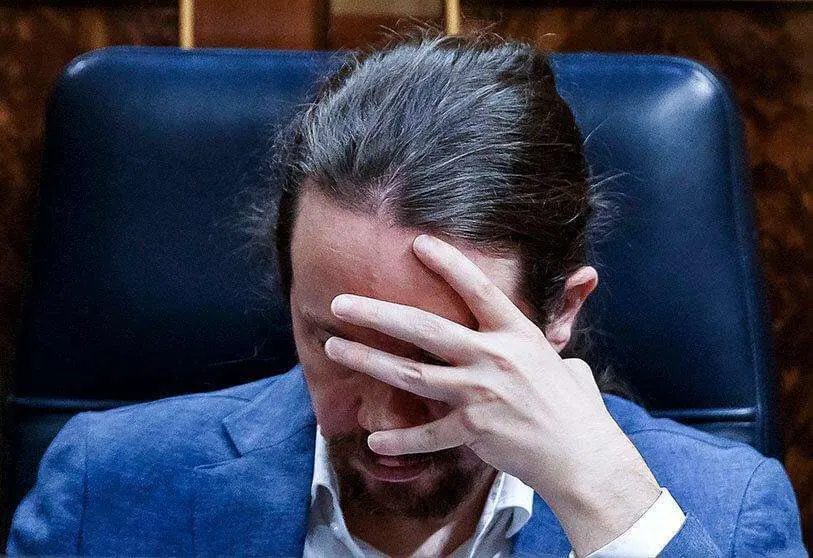Slander, that something remains

It is often said that if you are fooled once it is not your fault, but it is your fault if you are fooled twice. It is not easy to avoid this because we live in a society where politicians lie more than they talk (not "getting into bed" with Podemos, not agreeing with Bildu, advocating a referendum on self-determination for the Sahara, etc.) and "alternative truths" are in vogue, which Donald Trump started when, before a half-empty Mall in Washington, he brazenly claimed that his inauguration ceremony had been the most watched in history. From then on, the New York Times went on to recount the thousands of falsehoods that came out of his mouth during his mandate, which ended as it had begun, denying against all evidence that he had lost the election and had anything to do with the shameful assault on the Capitol. In other latitudes it is three quarters of the same, with Putin denying for the life of him that he had any intention of invading Ukraine until the very day before 24 February, or Boris Johnson who could not remember having organised parties in the middle of a pandemic while his fellow citizens were unable to leave their homes.
This is nothing new, and Tsun Tzu himself recommended two and a half thousand years ago to deceive the adversary in order to facilitate his defeat. What happens is that these politicians do not limit themselves to deceiving only their opponents, and so Roosevelt lied during the campaign that brought him to the presidency in 1941, saying that he would not bring the US into the war when in fact negotiations were already well advanced to do so. British politicians lied about the benefits of Brexit and separatist Catalans have done so with aplomb about the alleged benefits of the Procès. 'Nihil novum sub sole'. And now their lies are multiplied by the power of social networks that literally bring them into your life and by their simplification into very brief messages of 140 characters, where all the nuances are lost due to the same limitation of space, and which appeal more to emotions than to reason, more to feelings than to intellect. The system makes us think less and less. And they call 'fake news' what we have always called lies or hoaxes, as if in this way they are legitimised and lose their seriousness because they know that there are so many falsehoods that one nail drives out another nail and that they end up being forgotten because they cover each other up. And, as a consequence, we have to learn to live surrounded by lies because today the problem is not accessing information, but distinguishing between the true and the false. Which is not easy.
And this is where the media have a very important task. The free press, at the service of society and also controlling politicians from a theoretically unbribable submission to freedom of opinion and expression, has very important responsibilities that it cannot abdicate. Firstly, by clearly differentiating between information and opinion, something that is very clear in the Anglo-Saxon media and much less clear in the Spanish media, and then by having a firm commitment to the truth and verifying information before publishing it, even at the risk of sacrificing headlines that sell copies. And this, which should be the norm, unfortunately does not always happen. It will be said that this is nothing new, and it is true: President McKinley declared war on Spain in 1898 on the basis of an attack on the Maine invented by the newspaper magnate Randolph Hearst. But that is no excuse.
In recent days in Spain we have witnessed the shameful spectacle of two well-known journalists who, with their prestige (?), gave credibility to "information" that defamed a political leader and his party, knowing it to be false. Lies supplied to them by an individual of very dubious reputation while politicians of a different persuasion were pulling the strings of the hoax from afar. It is disgusting because not everything goes. The damage is done. Francis Bacon said "slander boldly, something will always remain". Spanish democracy cannot let scandals of this calibre pass without reacting. I confess that I never thought I would say something similar, but given the seriousness of what has happened, I agree with my admired Iñaki Gabilondo that in this we are all Pablo Iglesias.
Jorge Dezcallar, Spanish ambassador to Spain
Published in Diario de Mallorca, el Periódico de Catalunya and Cadena de Prensa Ibérica on Sunday 17 July 2022.

